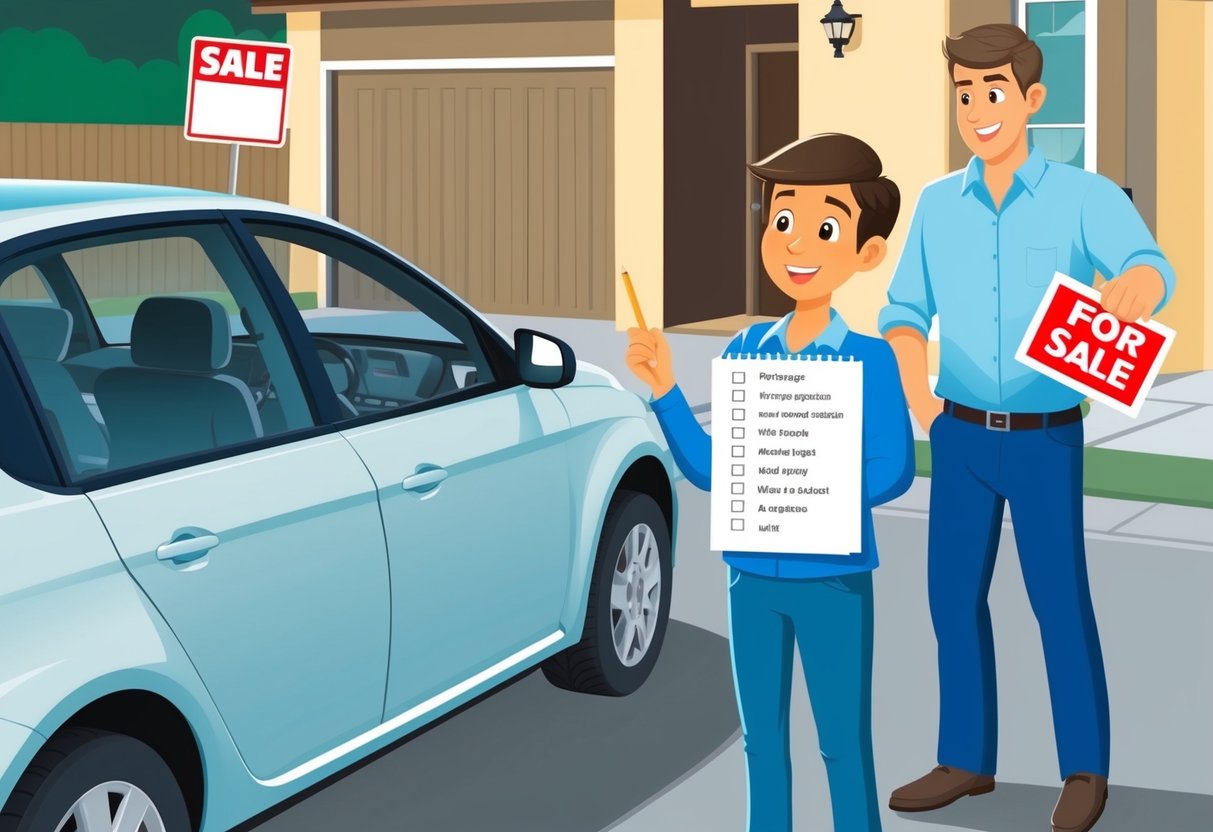
Negotiating the Purchase

When buying a used car from a private seller, knowing how to negotiate, what to discuss about price, and whether to factor in trade-in options can make a significant difference. Focused preparation and strategic questions will help buyers secure a fair deal while avoiding common pitfalls.
Understanding Negotiation Strategies
Having a clear negotiation strategy before meeting the seller is critical. Buyers should research the car’s market value using sites like Kelley Blue Book or Edmunds for leverage at the bargaining table.
Understanding typical negotiation tactics, such as offering a price below the asking amount but still within a reasonable range, can encourage the seller to come down in price. Remain polite and firm, showing confidence about the car buying tips gathered during the research phase.
Asking open-ended questions about the car’s maintenance history or the seller’s willingness to negotiate the price allows for more information gathering and signals to the seller that the buyer is prepared. Body language and timing can also impact the negotiation—waiting for pauses or hesitations can be opportunities to revisit price or terms.
Avoid appearing overly eager to purchase, as this can weaken the negotiation position.
Discussing the Price With the Seller
Discussing price should always be based on facts rather than emotions or pressure. Reference the car’s history, any items from the inspection, and comparable local listings during the discussion.
Buyers can mention their findings about similar cars and recent repairs or needed maintenance as justification for a lower offer. Having key information ready—like repair estimates or data on similar vehicles for sale—strengthens the buyer’s position.
Some sellers have less room to move on price, but most expect a back-and-forth negotiation. According to Autotrader’s car buying tips, asking the seller how they determined the asking price or if the price is firm can open up the dialogue.
Summarize agreed points in writing and clarify details before finalizing anything.
Factoring in Trade-In Options
While private sales rarely include trade-ins, some buyers may wish to offer their current vehicle as part of the transaction. If the seller is open to accepting a trade-in, it’s essential to determine fair market value for both vehicles in advance.
Gathering online appraisals or printed offer sheets from car-buying sites can help make the discussion more concrete. Discuss details such as the car’s condition, mileage, and any unique features that could affect its value.
Allow time for both parties to inspect the vehicles thoroughly. Even if a trade-in is not possible with the private seller, understanding current trade-in values at dealerships can inform negotiations.
Arranging Payment and Financing
When buying a used car from a private seller, buyers must decide how they will pay for the vehicle, whether to seek outside financing, and how the purchase fits into their overall budget. Careful planning in these areas helps prevent common mistakes and ensures the purchase is manageable over time.
Exploring Payment Methods
Private sellers typically expect payment in one of several forms: cash, cashier’s check, or a secure electronic transfer. Each method has its pros and cons, with safety and verification being top priorities.
Cash is immediate but can have added risks if carrying large amounts. A cashier’s check is often preferred for its security, but the buyer and seller should meet at a bank to verify authenticity before handing over the car and title.
Electronic payment services, such as bank-to-bank transfers or services like Zelle or Venmo, have become more popular but require both parties to be comfortable with the platform and transaction limits. Always ask for a receipt and confirm the title transfer before releasing any funds.
Scams can occur with all methods, so verifying the seller’s identity and legitimacy is important.
Considering a Car Loan
Some buyers do not have the full purchase price available and opt for a car loan from a bank, credit union, or online lender. Getting pre-approved for a used car loan before shopping can streamline the buying process and give a clear budget limit.
Many lenders require a vehicle inspection and a copy of the title, especially for private sales. Interest rates and loan terms for used cars can vary widely.
Comparing offers from several lenders is essential for finding the best rates. Buyers should ask about down payment requirements and check if there are penalties for early repayment.
For more details, NerdWallet provides a breakdown of steps to take when arranging payment and financing for a private sale.
Calculating Monthly Payment and Budget
When financing a vehicle, buyers should focus on how the monthly payment fits within their existing expenses and take-home pay. A general rule is to keep all auto-related costs—including the car loan payment, insurance, and maintenance—under 15%–20% of monthly take-home pay.
Use a car loan calculator to estimate the monthly payment based on the loan amount, term, and interest rate. Factor in taxes, registration, and additional fees to avoid budget shortfalls.
For a comprehensive list of budget questions to ask, Experian offers detailed guidance.